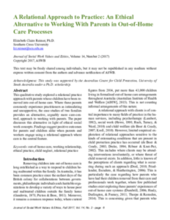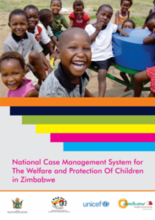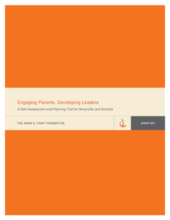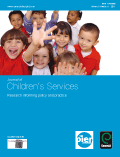Displaying 351 - 360 of 477
This manual is intended to train Para-social workers who are a non-formal “workforce” that constitute the largest but yet undefined group of caregivers who provide support and services to vulnerable children and families, particularly in low and middle income countries (GSSA, 2016).
This qualitative study explored a relational practice approach with parents whose children have been removed into out-of-home care in Australia.
The purpose of this document is to provide a framework for implementation of the National Case Management System (NCMS) for the care, protection and welfare of children in Zimbabwe.
This video from the National Child Welfare Workforce Institute explains how the state of Missouri in the US reformed its child welfare system by strengthening the social service workforce.
The subject of this report is to present the findings of stage two of a project aimed to address the anticipated risk to the foster care workforce by identifying and disseminating the most effective strategies to attract, support and retain foster caring families across all states and territories in Australia.
Undertaking a connected person / family and friends assessment is designed to help social workers to manage and complete a comprehensive and evidence-based assessment of connected people / family and friends who wish to foster or be special guardians to a known child or children.
The European Recommendations on the implementation of a child rights-based approach for care professionals working with and for children highlights the steps to be undertaken to develop a child care service workforce capable of applying a child rights-based approach to their work.
A summary of the International Alternative Care Conference 2016 via Storify.
This self-assessment and planning tool is intended for nonprofits and schools working with families to provide services that more effectively reach and engage parents in fostering their children's development.
The purpose of this paper is to map the current organisation and implementation of children’s services in three regions of Spain, to identify strengths and gaps and to suggest proposals for improvement in line with European recommendations.








